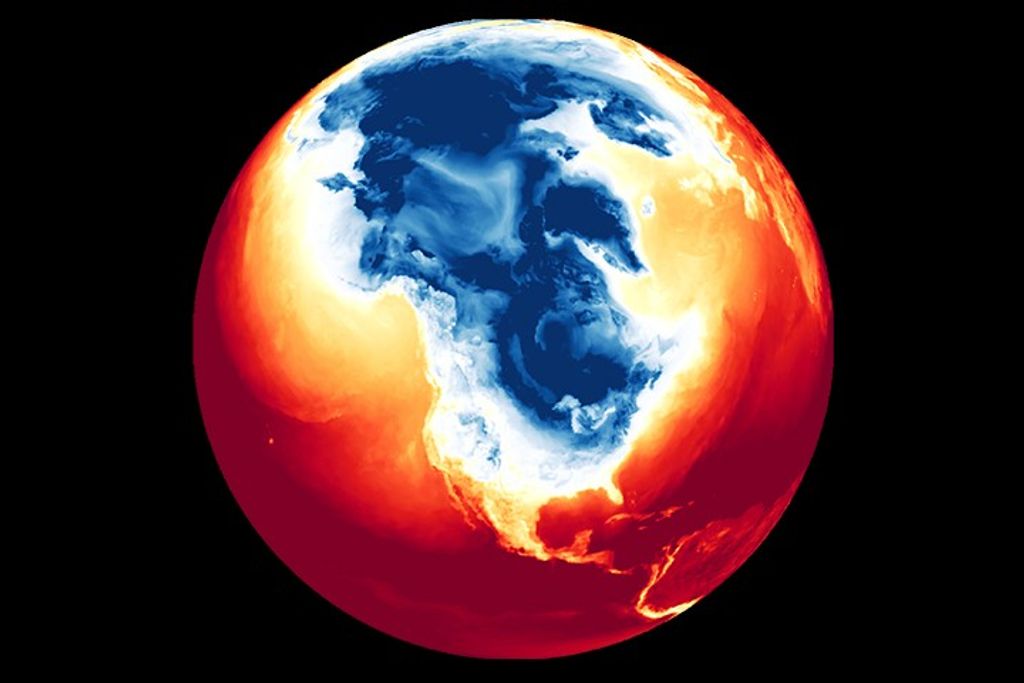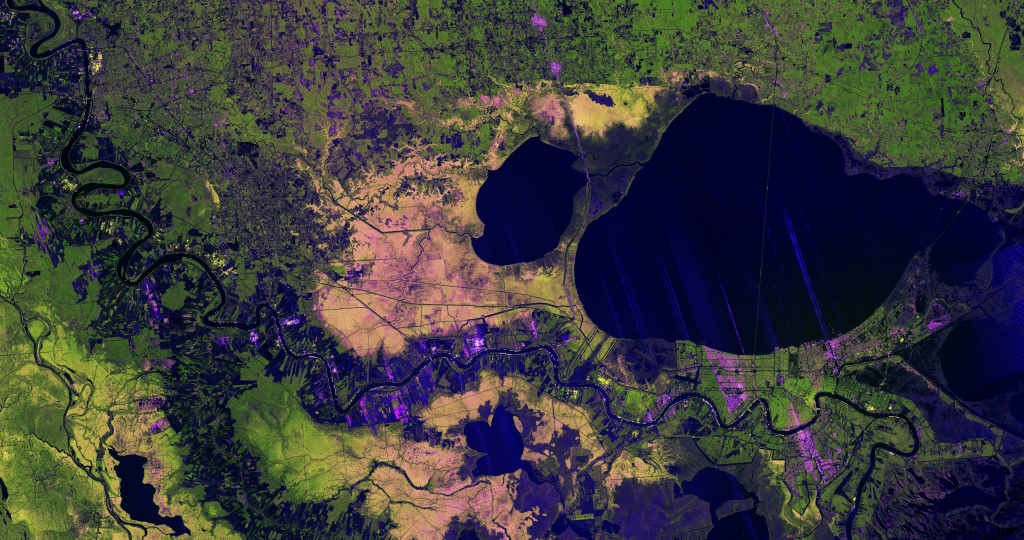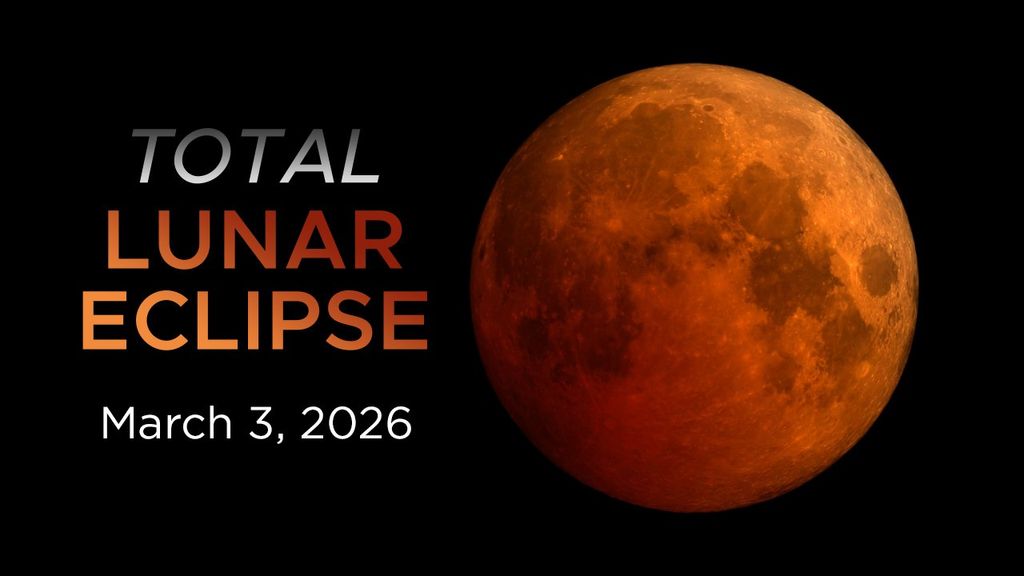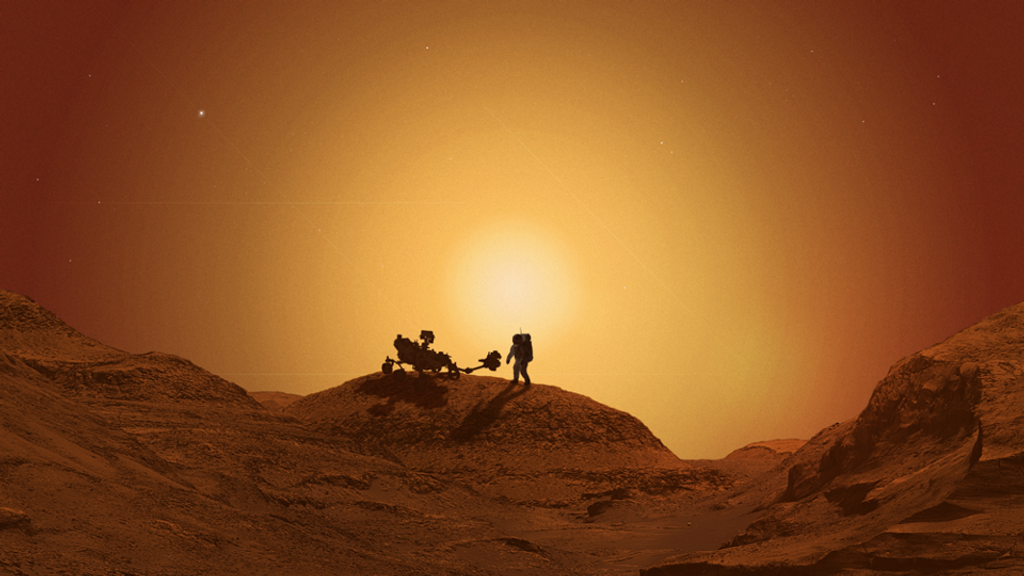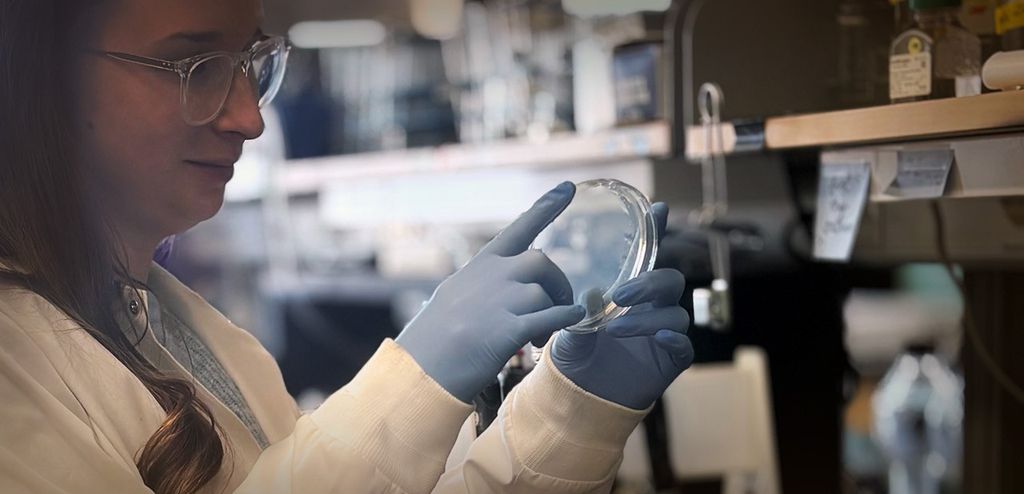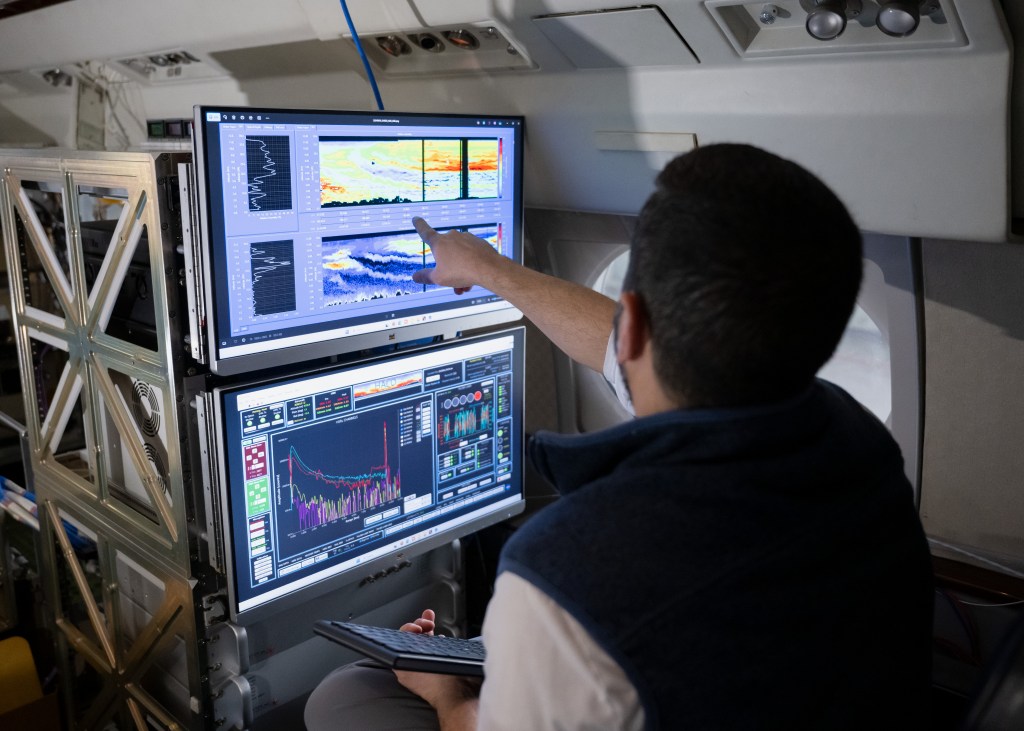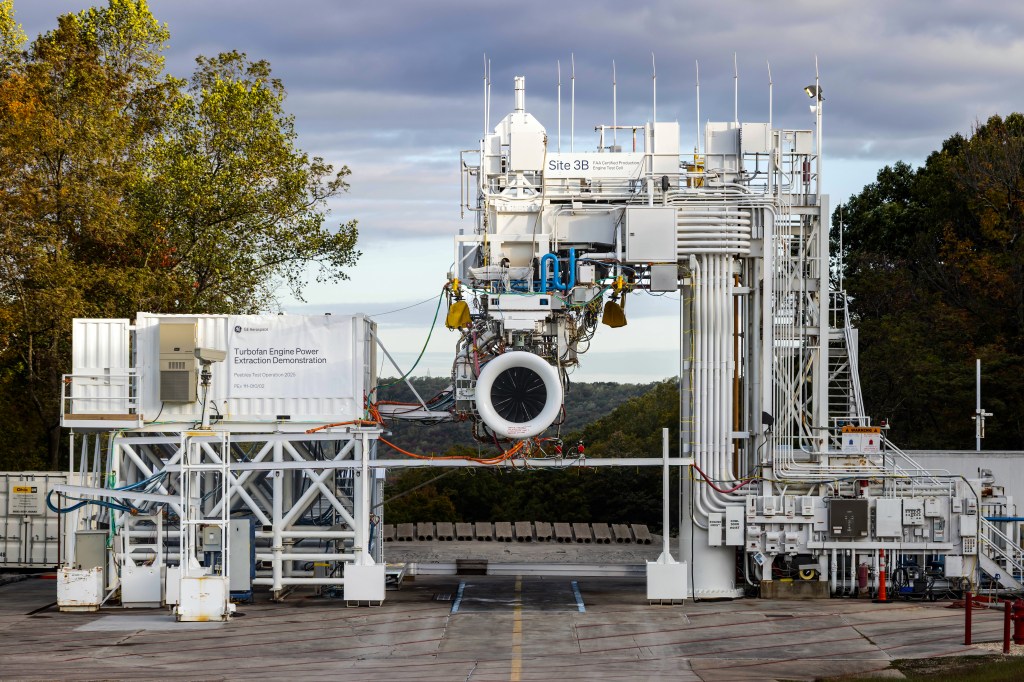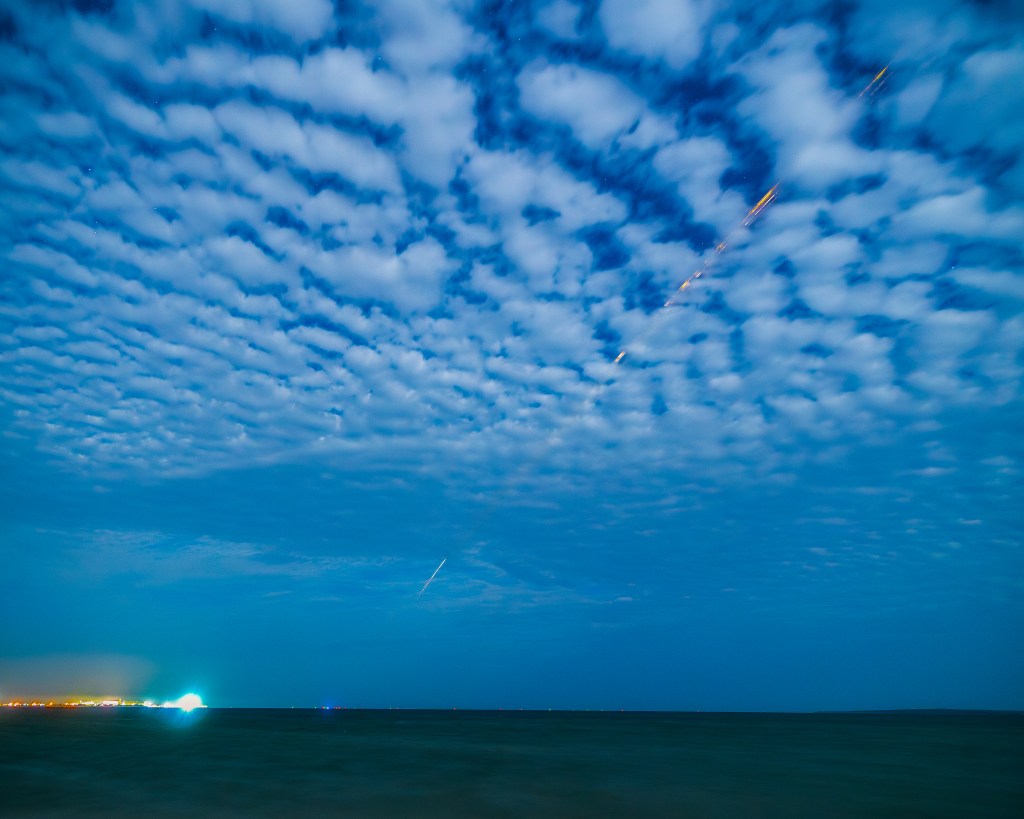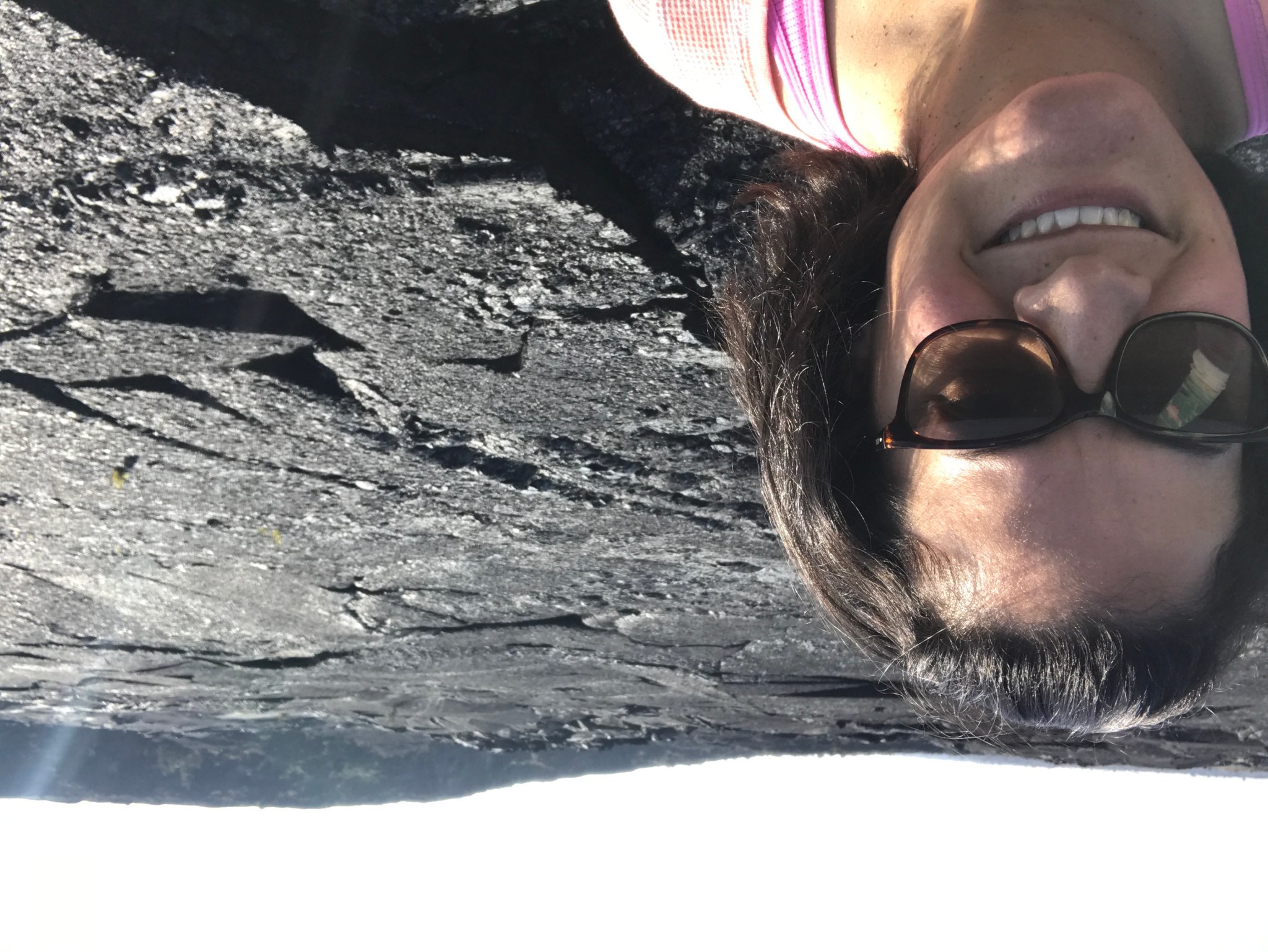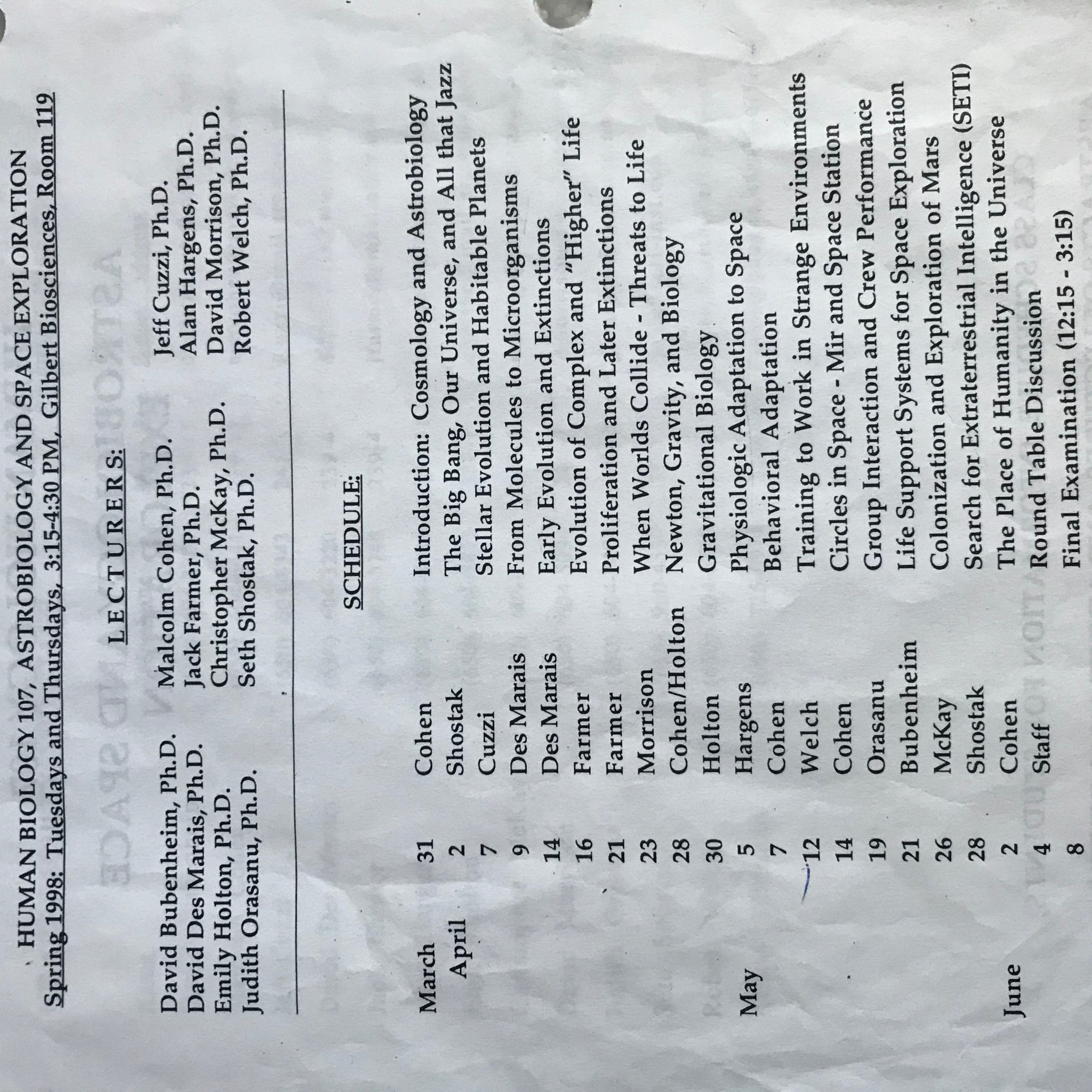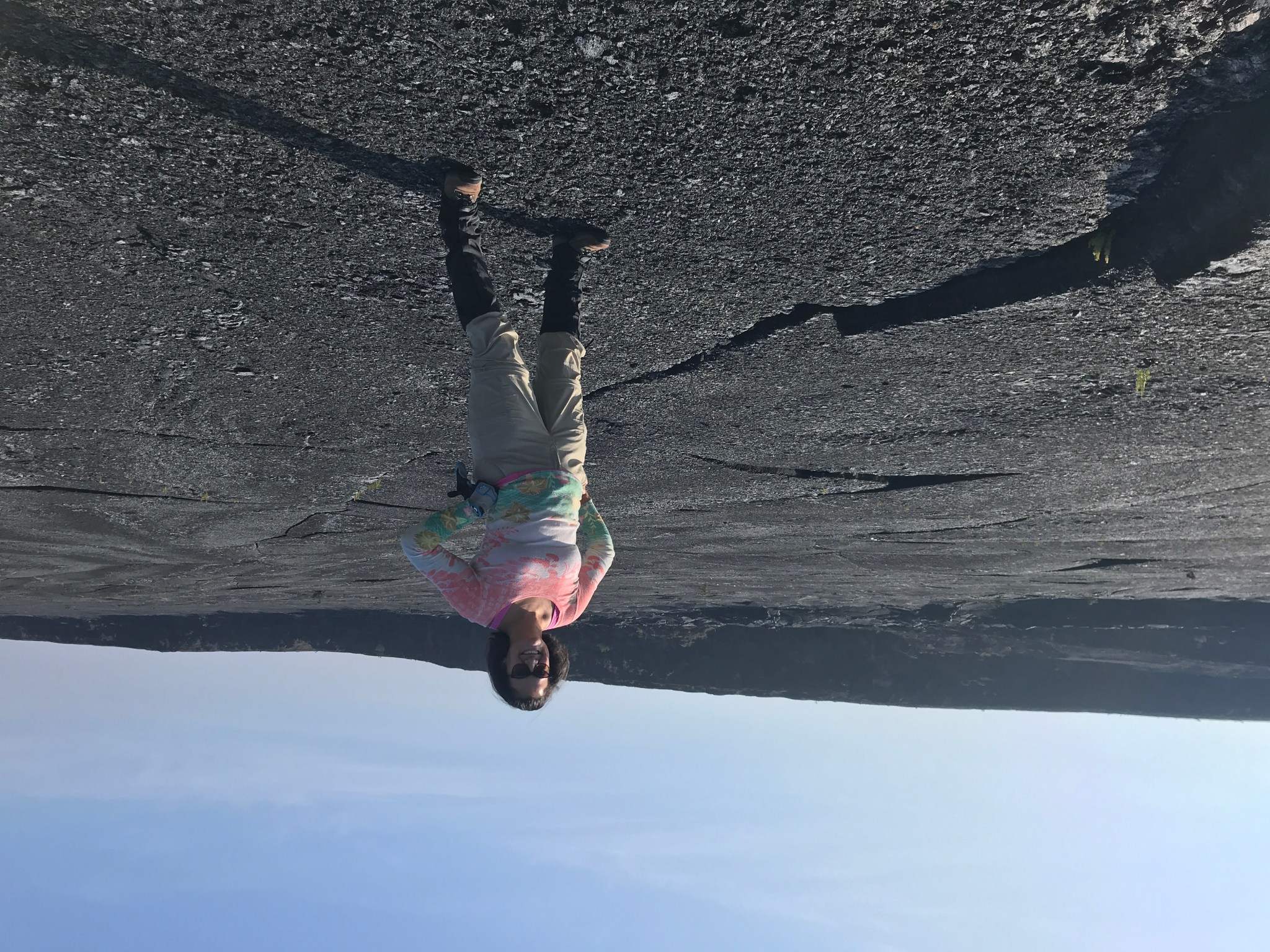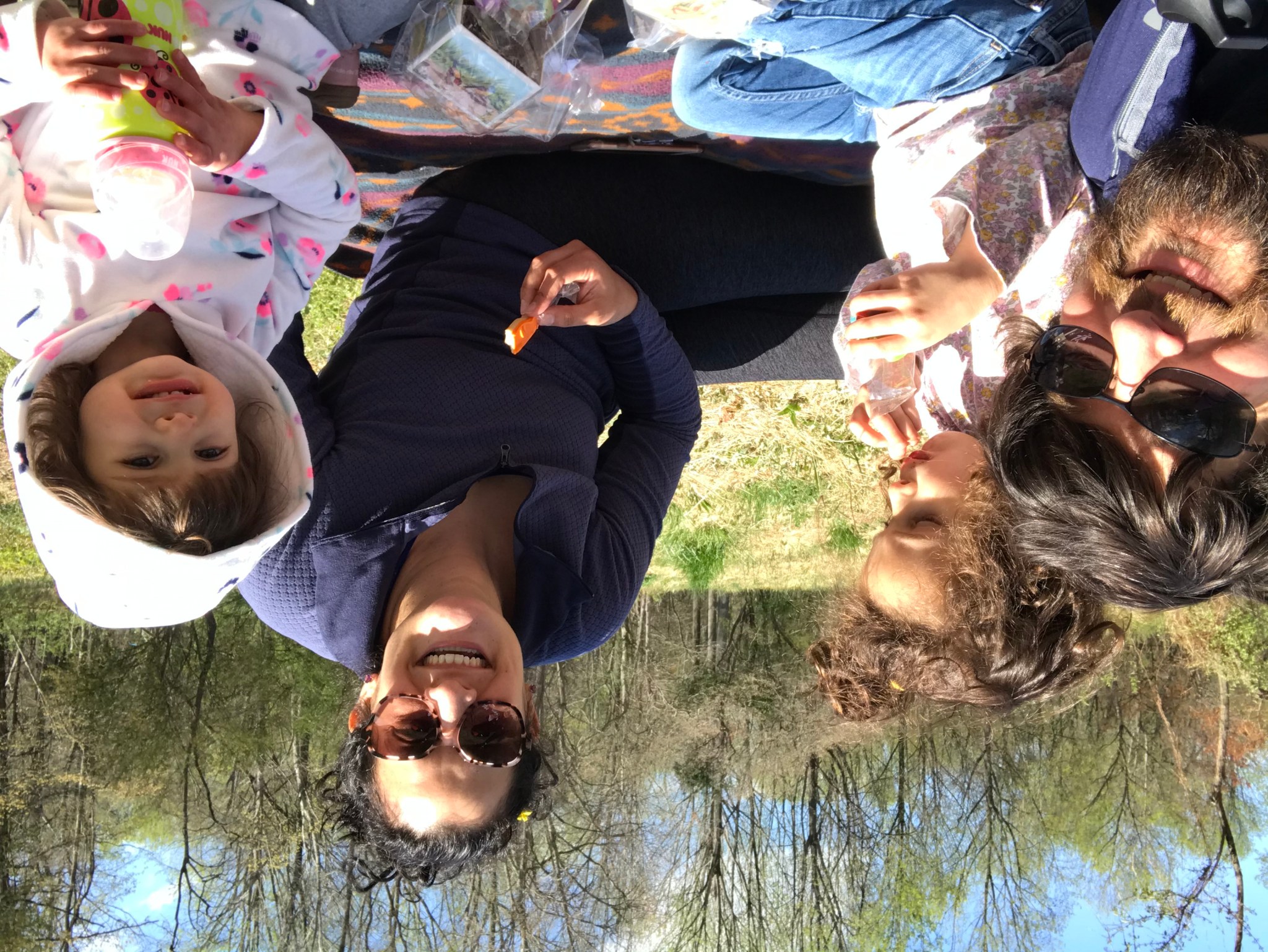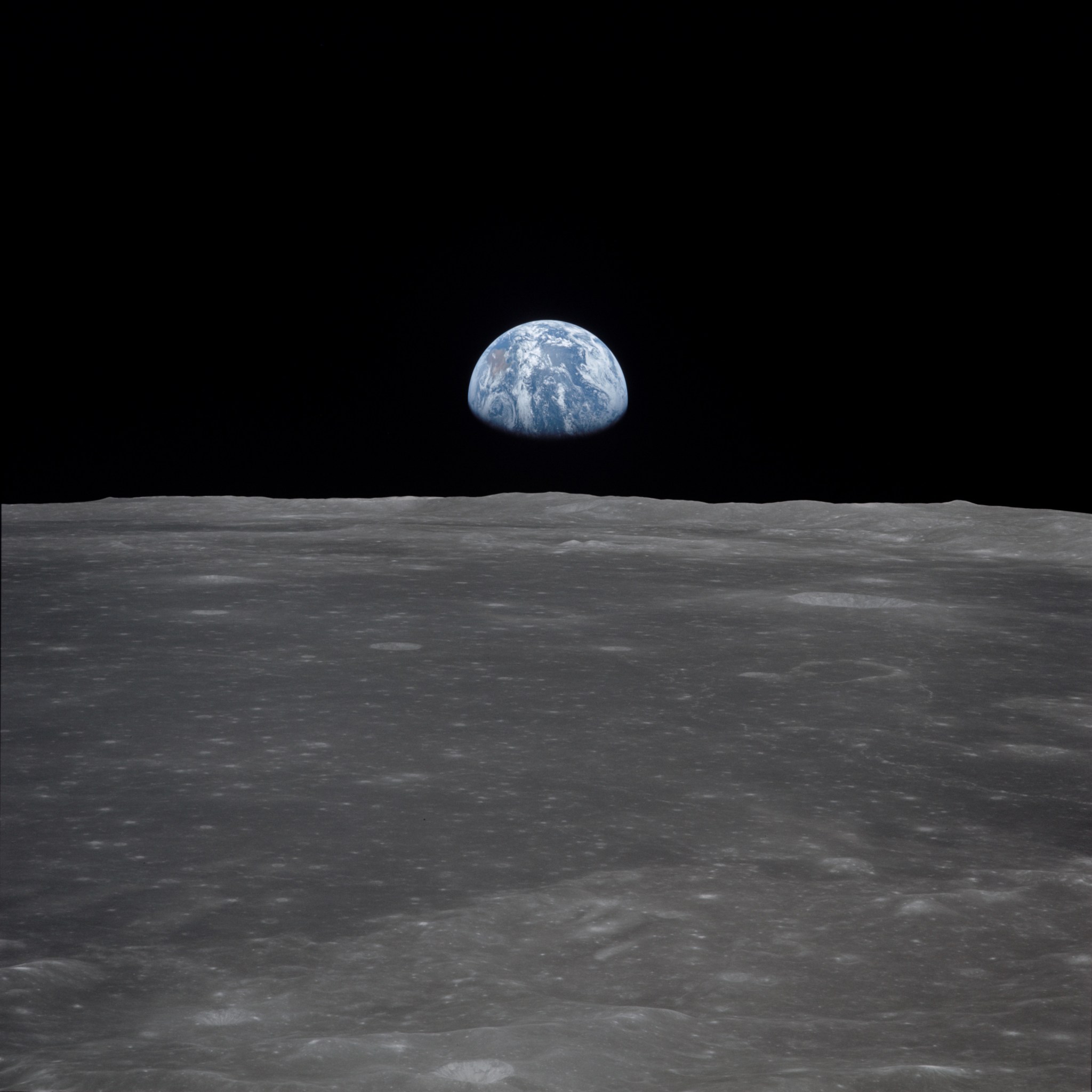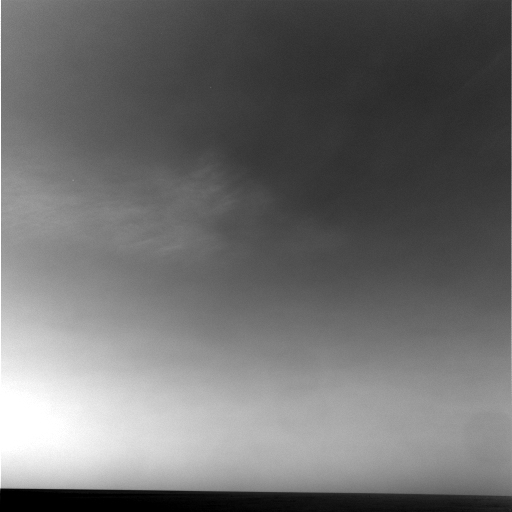Hi Delia. We understand you are currently on a detail at NASA Headquarters?
Yes, I’m midway through my second year.
Well, let’s start with your childhood: where you’re from, your growing up, where you started your schooling, and if there was anything about your early years that might have oriented you toward the career that you’re now pursuing?
My parents were in the military, so I was born overseas, in Torrejon, Spain. I have some great pictures of me in Europe as a baby, but I don’t remember too much of it, unfortunately. Then we lived in Texas, but I consider California my home since I was seven. I grew up in Northern California, which is a great place, and I’ve always loved science. I wanted to mostly be like a doctor or a veterinarian. I always thought space was cool, but my interest was in biology, so it never seemed an intuitive fit, which sounds silly now knowing what I know but I thought that space was only planets and stuff. I just liked playing outside and exploring and making up stories and adventures, being out in nature and digging into things. That was more of what I liked when I was little, and still do to some extent!
When you were in school, in your early grades, were there any particular subjects that appealed to you, that corresponded with your interest in science and understanding how things work and everything?
I don’t have a very specific memory of science. I enjoyed anatomy and general biology, how our body works, things like physiology and science, topics like that. And by the time I got to high school, it breaks up a little more into things like ecology and systems science. I think there’s just something intuitively interesting about how things integrate, different types of biology between plants and animals, how they all work together, so that’s always been something that’s been fascinating to me.
OK, and then as you pursued paths post high school you began to be in an environment where you needed to make some choices about majors and things like that.
Yes, I went to Stanford University, just down the road from Ames, for my undergraduate work. I studied Biological Sciences, which included lots of interesting things: invertebrate biology, ecology, behavioral sciences. I did toy around with other major ideas for a while, like Anthropology and Earth Systems. Some days I felt like I should have gone back to Earth Systems because they didn’t have planetary science back then, ‘back in the day’ as they say, it’s like twenty years ago now! But I think biology was still a great fit because you have to take a lot of the core classes like chemistry and physics for that. But I did have a very formative experience in my junior year: I took an elective called Astrobiology. And I still have my syllabus, I need to post it somewhere. It was coordinated by somebody who worked at Ames, Malcolm Cohen, who’s not there anymore, but it was basically one speaker a week, mostly people from Ames and it was fascinating. And this was the first time that I realized that biology could relate to NASA. It just didn’t occur to me before that the two could overlap. I have the syllabus and it’s kind of like looking down the halls of building 245, it’s crazy, it has Chris McKay, Seth Shostak from SETI, and I think Dave Des Marais is on it, all these famous people. And the fascinating thing is that it was called “Astrobiology” but this was when astrobiology was just forming and a lot of the things it had were things that we considered exobiology or space biology, like physiology, gravitational biology, some of these things you wouldn’t even consider astrobiology now but we considered it before to be the intersection between space and biology. Now we have all these other subdivisions and categories so it’s kind of cool to see how those all started, like the initial synergy between biology and NASA. It also had human factors, we had a space psychologist come and talk to us and that was really cool, and it ended up being how I came to Ames. Not to skip too much but right after college, I interned with the San Francisco Zoo for a year, because I wanted to go to veterinary school and get some animal experience for that. It was a great experience and I loved it. It was one year of my life and a couple of months and I have fabulous memories of it. It felt very important doing that work, but I decided I still missed space and I had this class that really appealed to me and I contacted the coordinator of that course and I said: “Hey, I took this class and it still resonates with me and do you know of anything that might be available that I could work on?” He gave me various people to talk to and I told them I was a biology major and I ended up talking to somebody in HR at Lockheed or one of the contractors that were going to be hiring to do biology research and I ended up landing a position at Lockheed working on gravitational biology experiments. And it ended up being very specific, it was nutrition experiments, studying the nutrition of rodent food bars. When you fly rodents into space you feed them with food bars, I like to think of them as basically Cliff bars for the rodents (laughs). And the idea is that you study if this is a good diet that we’re giving them, the animals that go into space, because you’re going to be studying them, so you want to make sure their diet is good to start with. And that was my in. I got hired to do that work and from there it’s been conversations and connections and pursuing my interests. So that’s how I got into NASA, it was that one connection from my class in college.
Wow, that’s great and it’s a pretty direct connection, from a Stanford astrobiology class directly over to NASA Ames. It’s not even very far!
Yeah! And it’s interesting because nowadays there’s the undergrad aerospace program at Stanford. I didn’t even know there was a NASA center within driving distance and now it’s a central part of my life! (laughs)
Would you like to tell us about some of the interesting work that you’ve been involved in at Ames, and what you’re currently working on?
Yeah, but I have to tell you, it’s been kind of a meandering path. When I did that job, and I really enjoyed it, but I was interested in getting closer to the space aspect of the work, and one of the really good things about Ames is that if you work on something and are helpful, there’s so much opportunity to work on other projects because so much of the work here, and at NASA in general, is changing and evolving, so there are always new things to join as your old projects close up. And so, I ended up supporting space shuttle experiments. So my first job was related to the nutrition study and then I joined a team supporting payloads aboard a space shuttle mission. We supported gravitational biology experiments that were going on the shuttle, seeing what happens to rodents in space. Specifically, I joined the data management team, making databases to collect all this data on the ground related to these experiments. And it’s always a little weird to talk about this because it was an amazing learning experience, but it was also the Columbia STS-107 mission. And so, there was a lot of excitement, this was my first shuttle mission and it was something bigger to be part of and we were all really proud of our work, but then the accident happened and it was obviously a very tragic ending. It was a very valuable experience but also very heartbreaking that my first shuttle mission, my first big project at NASA, was also a tragedy. After that I supported space station experiments, supporting hardware that was going to go on the International Space Station to do experiments, specifically for studying fruit flies aboard the space station. It was all very interesting, but I was having an itch to study where we were going in the long term. A lot of these experiments were studying what happens in space with microgravity, but I realized that the talks I was always going to in my spare time, when I could, were related to space itself. And that’s when I decided to go to grad school, so off I went to U.C. Santa Cruz. But again, I did have a bit of a meandering path, I didn’t find exactly the right project, so I left and came back to NASA and returned later to finish my Ph.D., so there’s a lot of stories in there. I met a lot of different people and learned a lot of different things along the way. In grad school, I was studying Mars and climate modeling of the Mars atmosphere and I got my Master’s, then I came back and worked on a completely different project called NASA CoLab which was about increasing collaboration and evangelizing open source and social media things for space projects, which these days are second nature for everyone but this was over a decade ago. I was involved in that project and it was a very valuable experience in terms of just learning a lot of different things that go on at NASA. And then I joined what’s now SSERVI, at the time it was NLSI, the NASA Lunar Science Institute, and now it’s SSERVI, the Solar System Exploration Research Virtual Institute. And that was a great experience with a wonderful team, and I got to know a lot of the lunar community. There were a lot of opportunities for growth and that really inspired me to go back to grad school and I returned through a program that is now called Pathways.
I returned to studying the Mars atmosphere. I started doing modeling but had the opportunity to do laboratory work with the wonderful Laura Iraci, an Earth scientist who is an Earth atmospheric chemist. In layperson’s terms, I made water ice clouds under Martian atmospheric conditions, using salts, which are very prevalent on the Mars surface. So it was very rewarding to do both modeling and laboratory work as part of my thesis. So I finished my degree, and that kind of brings me up to the somewhat present, and where I am today. But a lot of other great experiences were in there, with a lot of great people, which has all served me well in where I am today. I have all these cool relationships from the different areas I have worked in, that I get to use in my present work, and that’s been really great.
How does the work that you do for NASA support its strategic plan and direction, and especially how is it justified to the taxpayers that fund all of it? Because it has to do with life in space and since NASA is planning to go to Mars and send astronauts there eventually, it’s pretty obvious that your work is right in the center of the agency’s strategic vision for future exploration, but is there anything else you want to mention about that?
Yeah! When I was getting my degree, it was an opportunity to work for NASA while doing research, and then afterward, and up until now, my detail work here is a really good example of fitting into that discussion. On my detail I am the Lead for the Solar System Workings program which is one of the Planetary Science Division’s largest R&A (Research and Analysis) programs; our title is generally referred to as “Program Officer”. What we do, among other things, is help select the best science for funding. It’s quite competitive and this is people’s livelihoods. We, as Program Officers, find experts to identify the best science for NASA to fund. It’s a big responsibility because these are very precious dollars and we want to make sure that we fund the best science. People put a lot of work into their proposals and we want to make sure to really evaluate things fairly and have a solid process so that we are responsible and doing the right thing, and also aligning with strategic goals of NASA. We select science on the basis of the quality of their proposed work, but we always keep in mind the strategic goals and such. Some projects are making the most of data that’s already come from NASA missions, so we are maximizing the return on past missions. We are also preparing for future missions and identifying science that could help identify future mission targets or interesting questions to look at. This fundamental R&A is really a core component of what NASA does, which is explore, and in that sense that we are all part of that mission, part of that same ecosystem that does interesting science and addresses interesting questions.
Right. And what do you like best and least about your job?
I like the people, working with people. I get a lot of satisfaction in working with great people and just working through problems. I also love the opportunity to make processes work better. That’s very gratifying and it’s a good thing you’re able to do at headquarters, refine processes and do things in a better way, that’s really satisfying. As far as least, something unique to what I’m doing now, is that I can’t always talk about what I’m doing very specifically because there’s an element of discretion with review panels. I can’t say something like “Oh, I had a great conversation with Joe Smith today” (that’s a fake name), because I have to be impartial if Joe Smith is a reviewer. And of course, there’s always paperwork and rules and sometimes there’s not a lot of control over the systems you use but you kind of get used to that. But I’ve worked for NASA long enough that it doesn’t bother me too much.
It sounds like you really enjoy your job, but have you ever thought what a dream job for you might be if you weren’t doing what you’re currently doing?
Yes. That’s the short answer. I think it would be really fun to host an informal science television show, something a little fun and quirky, and be a little informal. It would be fun to bring a little personality into it.
That does sound like fun. What would your advice be to a young person who sees you at NASA and would like to have a career like you are having? A little advice about how to prepare or how to wind up happy like you are, doing the work that you’re doing.
Obviously having a strong science background is important. I think sharing what your interests are with people that you’re working with. Networking is very important and so many of the opportunities that I’ve had I’ve come from informal networking, so I think that is incredibly important. Going to meetings, trying to talk to people in person, telling them what you want, in a respectful way, because if they don’t know what you’re interested in they can’t help you. I also think if you have a very specific thing that you’re interested in, I’ve been doing this for a few years, that it depends on very specifically on what the position is and what point in time it is. For example, if someone was interested in getting a position like I had twenty years ago, right, I don’t have the most up-to-date information about how to get a position like that. Getting hired in a certain type of thing might have been easier or harder twenty years ago, so ask somebody who got in there recently, so you have the most up-to-date information. For somebody who might want to be a researcher at NASA, it’s different nowadays. Thirty years ago they might have been able to say “Oh, we really need to hire a bunch of people all at once”, whereas now you can be a postdoc for ten years before you’re hired as a civil servant, so ask somebody who is fresh in the field for the most up-to-date information. I think that’s good career advice for whatever career.
Now switching a gear: what do you do for fun?
I have two little kids, so I’d say my definition of fun has changed since I had them (laughs). It is still fun but different. We love to go out walking as a family; yesterday we all donned our rain boots and splashed in puddles and it was great! I don’t think my husband liked it, but I had a blast! (laughs)
Are they in school, or are they younger?
They’re younger. My older one is four and my younger one is two. Normally they’re in daycare but not right now, obviously [due to the Corona virus]. But I like being outdoors, it’s just fun to experience things through the eyes of a child, it’s great! I’d say getting outdoors as much as possible, being silly! I like cooking, I’m starting to get back into cooking after doing simple meals for several years. I’m also trying different types of food; I think that’s great. And so much of NASA is about exploration so I try to have this attitude of exploration. It’s a little hard right now but normally I like to do one new thing each week, try something new, go to someplace new. That could be a new museum or a new ethnicity of food that I try but I try to do something new on a regular basis. Novelty is my interest or my hobby!
That’s a good one! Any other hobbies or talents or sports or musical interests? Or what book is on your nightstand, that kind of thing?
I occasionally do yoga. I used to do more. I enjoy science-fiction, not as regularly now, but science fiction, cooking, let’s see what else? Those are the main things.
How do you like living on the East Coast? Do you miss California a lot?
We do like Maryland, and it’s been invaluable learning from Headquarters. California is great and we do miss it and Ames of course. It’s different here, we have a very friendly neighborhood, all the neighbors know each other, the kids do not “social distance” (laughs), they just can’t help it but we try, everyone plays together. It’s a really nice community. I’ve had a social network since I was eighteen in the Bay Area, so we miss that social network, I miss it a lot. We’re slowly trying to grow that here, but it’s harder to meet people when you get older. But the people at Headquarters are great. We live a little bit further away than a lot of Headquarters people, but hopefully, as the kids get older, we’ll be able to go to the capital, it’s a really cool city and I’d like to explore more of that.
Is there an accomplishment in your life, that is not necessarily work-related, that you are most proud of?
I defended [my Ph.D. thesis] six months after I gave birth and I felt pretty cool about that, it was not easy.
That’s an achievement!
Yeah! And it was tough because being a mom is really important to me and there were definitely times during those six months when I would’ve wanted a little more time with my little one but life happens when it does and I made it through, and my little one was a source of inspiration to me for a lot of that.
That’s a perfect segue because our next question is: who or what inspires you?
Oh, a lot of people, I mean certainly my children because it might sound boring to just talk about one’s kids all the time but when you have your own kids you just realize, you see in them so much of your potential, your potential younger self. You see that in them and then you re-see it in yourself, and that’s incredibly empowering. But I see it in all my coworkers, especially now when we have this difficult time, where some people have families they are balancing, or they live on their own and that’s really challenging too, to live by yourself during this time and everyone is helping each other out, personal and work are integrating a bit more but we are all working as a team. You see the value in all your teammates and that’s incredibly inspiring. I can think of so many people that I’ve met in my career that were amazing. Some of them you’ve interviewed, like Darlene [Lim], she’s phenomenal of course. She’s so inspiring. I was also lucky to meet, when I went to NLSI before it was SSERVI, Barry Blumberg, who was the first director of the Astrobiology Institute. He also was a Nobel laureate, but he was one of the kindest humans I’ve ever met. You can be smart but there’s never a reason to be unkind because you’re smart. And if Barry could be kind, then nobody else has an excuse for not being kind. There’s so much value in being a smart person who treats others well. He was among the team there that inspired me to go back to grad school and to have somebody who is inspiring and amazing believe in you is incredibly special.
Beautifully said, thank you. Here’s a two-part question: Do you have a favorite quote and/or a favorite image or picture of your life or your career, something you find particularly meaningful, that we might see on your wall if we walked into your office?
Yes! The Roman philosopher Seneca said, “Luck Is What Happens When Preparation Meets Opportunity”. I have worked in a lot of variations at NASA, currently as a civil servant detailing at Headquarters, and I’m very fortunate in my position. I worked really hard at various points, but I also think, while there are a lot of smart people out there, not everyone gets the opportunity. So if you have the opportunity to get hired a certain way, or to work with a certain person, just realize that yes, you earned it, but there are a lot of people who are as smart but maybe didn’t have the opportunity, so just be thankful for the opportunities you have. And be prepared! As far as a favorite image, wow, there are so many great ones. I’ll think about that.
It doesn’t have to be just one.
I love the Earthrise pictures of the Moon, but I also love anything that makes you remember that other planets are really places that we can hopefully touch someday. This .gif of clouds on Mars makes you feel like you are just seeing some clouds on Earth!
And thank you very much, we’ve enjoyed talking with you.
It was nice to talk to you both.
Interview conducted by Fred and Sara on 4/27/20


